Welcome to the world of web hosting control panels! In 2025, these essential tools have evolved to make website management simpler and more efficient for users of all experience levels. As a beginner, understanding how control panels work and their importance in managing your website may seem overwhelming. However, fear not, because this comprehensive guide will demystify web hosting control panels, providing you with the knowledge to navigate this crucial aspect of web hosting confidently.
What is a Web Hosting Control Panel?
A web hosting control panel is a graphical user interface (GUI) that allows users to manage their hosting accounts and websites easily. Hosting providers offer these panels as a central hub where you can perform essential tasks like managing domains, email accounts, databases, file systems, security settings, and more.
In 2025, control panels have become increasingly sophisticated, automating many tasks that previously required advanced technical knowledge. Whether you’re managing a single personal blog or running a small business website, a control panel gives you the power to configure, monitor, and optimize your online presence.
The Role of a Control Panel in Website Management
A control panel simplifies website management by offering an intuitive interface to perform tasks that would otherwise require command-line expertise. Here’s how control panels help users manage their websites:
- Domain Management: Register and manage domains, subdomains, and DNS settings easily.
- Email Management: Set up and manage email accounts associated with your domain, configure autoresponders, and set up spam filters.
- File Management: Upload, modify, or delete files through the file manager. FTP and SFTP access also enable more advanced file transfers.
- Database Management: Create, manage, and configure databases using tools like MySQL or PostgreSQL.
- Security Settings: Manage SSL certificates, password-protect directories, and configure firewalls for enhanced security.
Control panels make website management accessible for users of all technical skill levels. By using a control panel, even beginners can perform tasks such as creating email accounts, installing applications, and monitoring website statistics without the need to learn complex coding or system administration.
Popular Web Hosting Control Panels in 2025
As web hosting technology continues to advance, there are several control panels available, each with unique features, pros, and cons. Let’s dive into some of the most popular web hosting control panels in 2025:
1. cPanel/WHM
cPanel/WHM continues to lead the market in 2025 due to its extensive feature set, wide hosting provider support, and ease of use.
- cPanel is the part of the panel used by end-users to manage their website and hosting settings.
- WHM (Web Host Manager) is the backend interface used by hosting providers or server administrators to manage the server.
Key Features:
- Feature-rich environment for managing websites, databases, email accounts, and security settings.
- Automatic updates and robust security measures to protect your website.
- Integrations with popular software, including Softaculous for one-click application installations (WordPress, Joomla, Magento).
Pros:
- User-friendly Interface: Suitable for both beginners and advanced users.
- Extensive Documentation and Support: With years of industry presence, cPanel has a massive user base, extensive documentation, and excellent customer support.
- Third-Party Extensions: cPanel supports numerous plugins and extensions, offering endless customization possibilities.
Cons:
- Cost: cPanel’s licensing fees have steadily increased, making it more expensive, particularly for small-scale hosting providers or users managing multiple domains.
- Resource-Intensive: cPanel requires significant server resources, which may be a drawback for hosting on lower-end servers.
2. Plesk
Plesk remains one of the most versatile control panels in 2025, offering compatibility with both Linux and Windows servers. This makes it an ideal choice for businesses that need flexibility across different platforms.
Key Features:
- Plesk’s WordPress Toolkit simplifies the process of managing multiple WordPress sites.
- Strong focus on security, with built-in features like fail2ban, ModSecurity, and integration with Let’s Encrypt for SSL certificates.
- Extensive support for both Docker and Git integration, which makes it popular among developers.
Pros:
- Cross-Platform Compatibility: Works seamlessly with both Linux and Windows, making it highly versatile.
- User Experience: Plesk’s interface is clean, modern, and easy to navigate.
- Extension Support: Offers a wide range of plugins, from SEO tools to backup solutions.
Cons:
- Costs: Like cPanel, Plesk comes with licensing fees that may be prohibitive for small hosting providers or personal users.
- Limited Third-Party Extensions (Compared to cPanel): While Plesk has a decent array of extensions, it is not as extensive as cPanel.
3. DirectAdmin
DirectAdmin is praised for being a lightweight control panel that prioritizes speed and simplicity. It is ideal for users who want a no-frills interface to manage their hosting environment without sacrificing essential features.
Key Features:
- DirectAdmin offers basic file management, domain management, and email features, making it a great option for beginners.
- Minimal system resource requirements, making it an excellent choice for lower-end servers or hosting environments where performance is a priority.
Pros:
- Affordability: DirectAdmin is far more affordable than cPanel and Plesk.
- Lightweight: Uses fewer resources, which results in faster performance.
- Simplicity: The interface is clean and easy to navigate, ideal for those who don’t need advanced customization options.
Cons:
- Fewer Features: DirectAdmin lacks some of the advanced features found in cPanel or Plesk.
- Limited Plugin Support: The third-party ecosystem is smaller, offering fewer plugins and integrations.
4. Virtualmin
Virtualmin is an open-source control panel that offers a powerful solution for managing virtual servers. It’s well-suited for developers, advanced users, and hosting providers who require greater control and flexibility.
Key Features:
- Manages multiple virtual servers and websites from a single interface.
- Offers detailed configuration options for databases, file systems, email, and DNS.
- Open-source nature means it’s constantly being updated and improved by the community.
Pros:
- Free to Use: Virtualmin is open-source, making it one of the most cost-effective options available.
- Customizability: Since it’s open-source, users can tailor it to their exact needs.
- Multi-Server Support: Great for businesses managing multiple virtual private servers (VPS) or dedicated servers.
Cons:
- Complexity: Virtualmin’s flexibility comes with a learning curve. It may not be as intuitive for beginners.
- Community Support: While the community is active, official support is limited compared to commercial control panels like cPanel or Plesk.
Key Features to Look for in a Control Panel
As web hosting technology evolves, control panels in 2025 have become more feature-rich and user-friendly. When choosing a control panel for your web hosting needs, keep the following features in mind:
1. Intuitive User Interface
Look for a control panel that provides a clean and simple interface. A user-friendly design will make it easier for you to navigate and perform tasks quickly, especially if you’re a beginner.
2. Website and Domain Management
Ensure that the control panel provides robust tools for managing domains, subdomains, DNS settings, and file systems. A good control panel will streamline domain registration, transfer, and renewal processes.
3. Email Management
Many control panels offer built-in email management features, such as creating new email addresses, configuring autoresponders, and setting up spam filters. Make sure the panel you choose has robust email management options.
4. Application Installers
The ability to install applications like WordPress, Joomla, or Magento with a single click can save you a lot of time. Ensure your control panel offers an easy-to-use installer like Softaculous.
5. Security Features
Security is a critical aspect of web hosting. A good control panel will provide features like SSL certificate installation, IP blocking, password-protected directories, and firewall management.
Conclusion
Web hosting control panels have come a long way in 2025, offering more features, better user experiences, and stronger security than ever before. Whether you’re just getting started with a personal website or managing a portfolio of sites for your business, the right control panel will make all the difference in how smoothly your web hosting experience goes.
When choosing a control panel, consider your specific needs. cPanel and Plesk offer comprehensive feature sets for users who need extensive tools and support, while DirectAdmin provides an affordable and lightweight alternative. Virtualmin, with its open-source nature, is ideal for advanced users looking for maximum flexibility.
No matter which control panel you choose, it should simplify website management, making it more accessible, secure, and efficient. Evaluate your options carefully, and find the panel that aligns best with your hosting environment and goals.



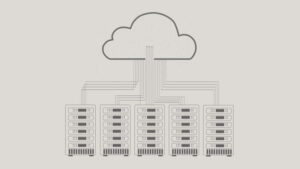



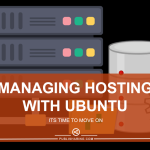
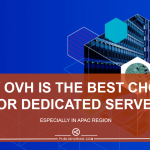
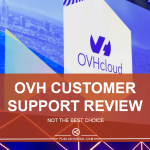

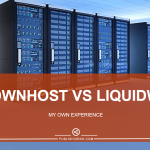
Hi
Hi 👋